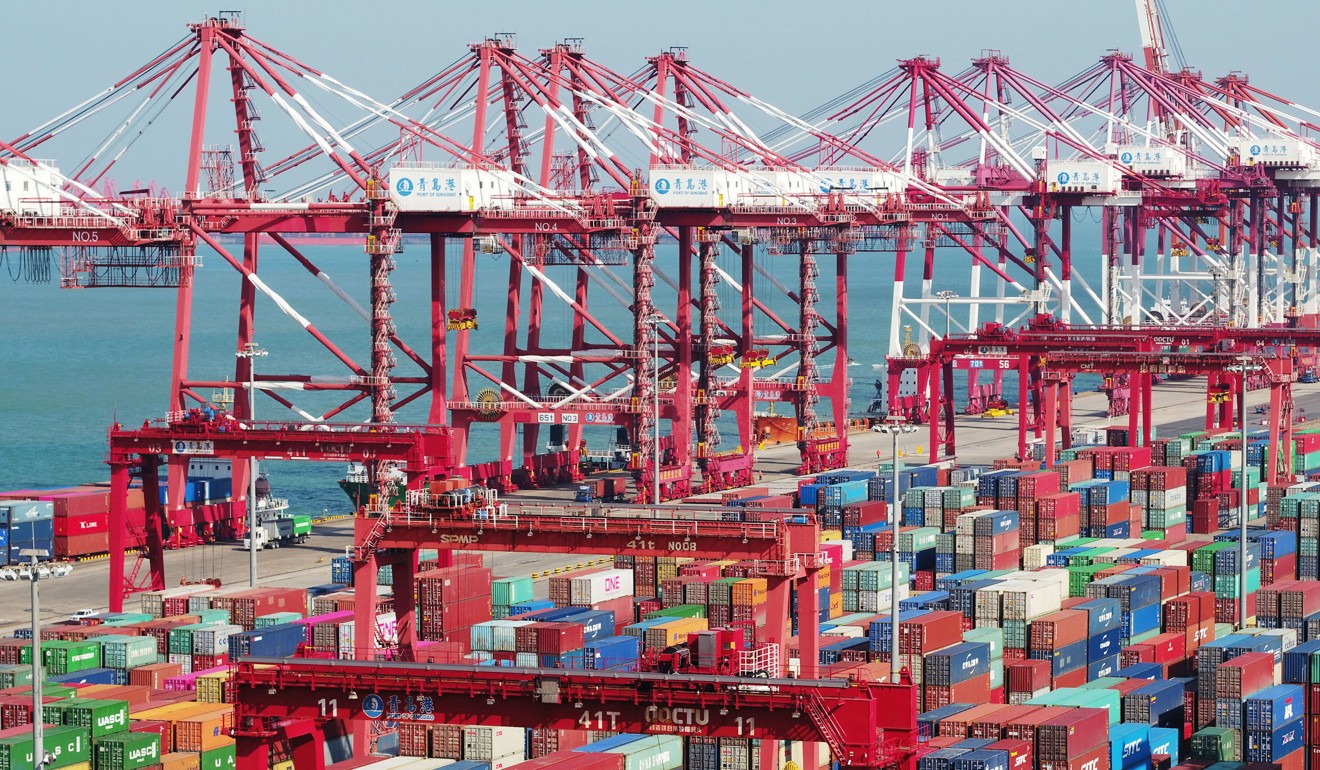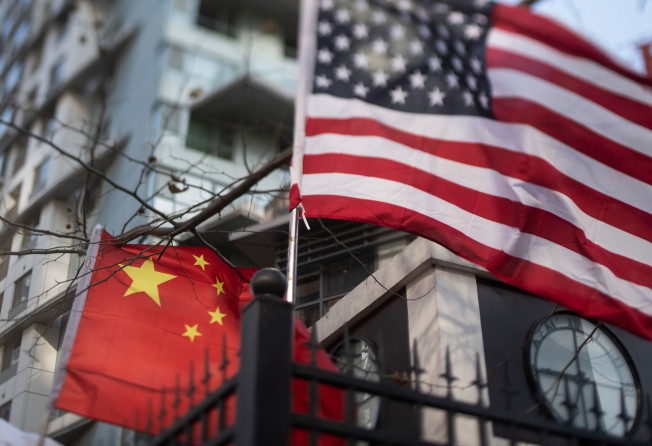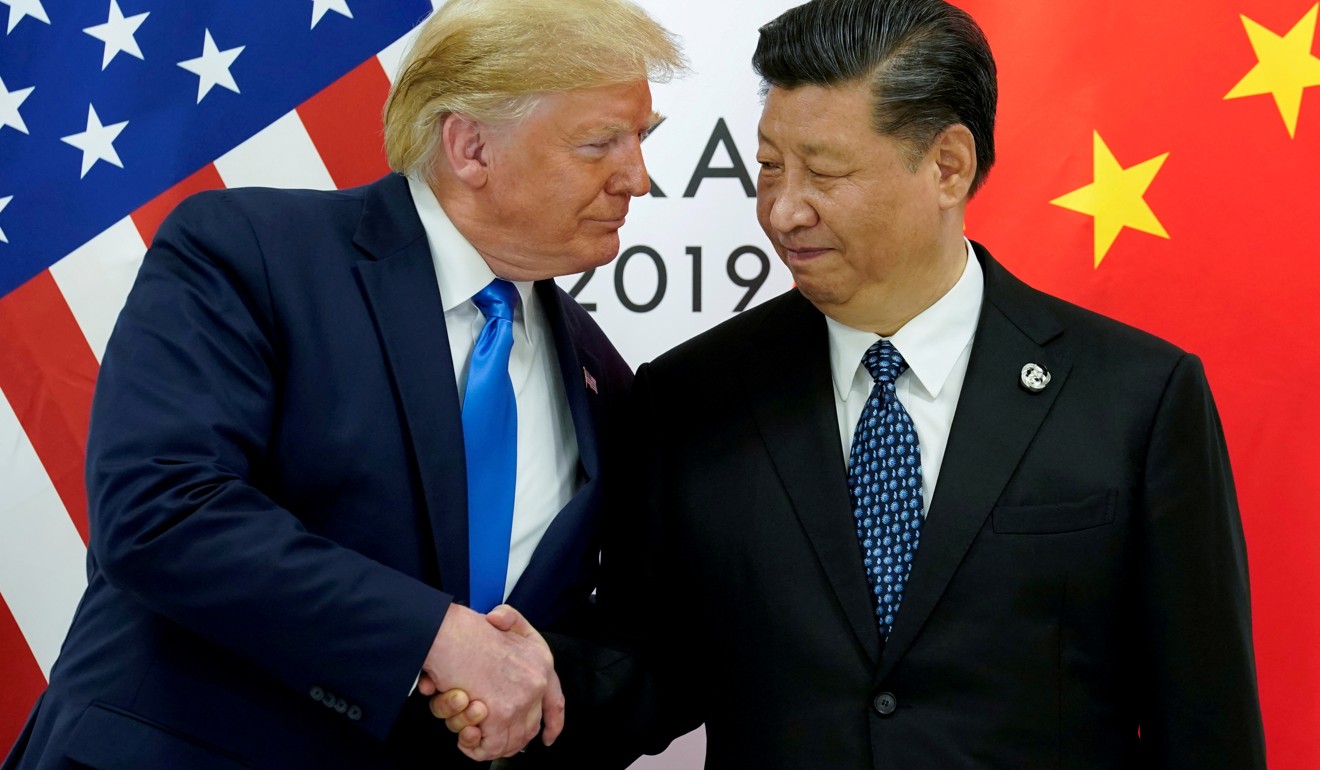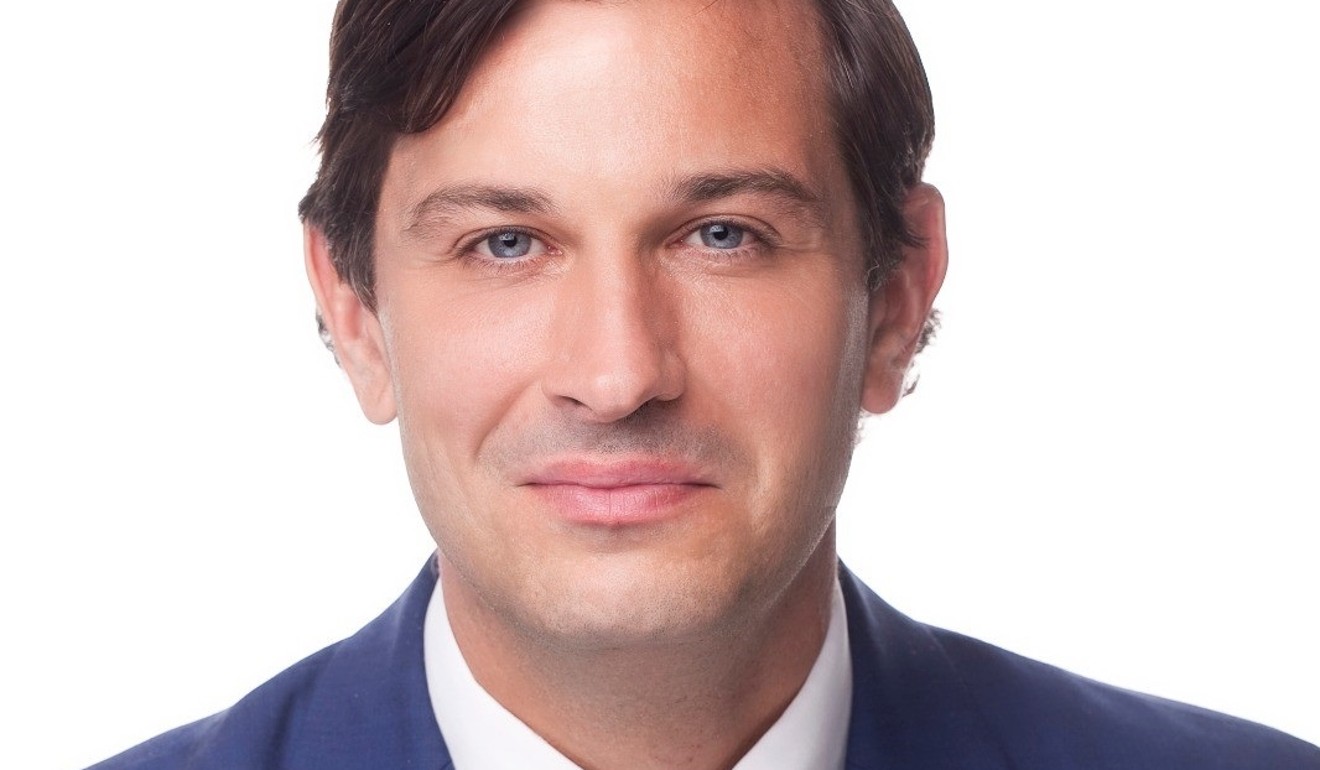
Tensions between US-China over trade, technology ‘persistent’, could last for years, BlackRock says
- Trade war weighing on confidence in capital expenditure and manufacturing, according to the BlackRock Investment Institute
- US now an ‘exporter of economic and political instability’

Strategic tensions over trade and technology between the United States and China, as personified by the trade war raging for the past year, are “structural and persistent” and will last for years, if not decades, according to the BlackRock Investment Institute.
Ben Powell, the institute’s chief investment strategist for Asia-Pacific, said the trade war was already affecting confidence in terms of corporate capital expenditure, manufacturing production and growth globally.
“The US has moved to being an exporter of economic and political instability, perhaps for the first time since the second world war,” Powell said. “[The US-China tensions] will ebb and flow. There will be better days and worse days. There will be even better tweets and worse tweets.”
The BlackRock Investment Institute is a research division of BlackRock, the world’s biggest asset manager with US$6.5 trillion in assets under management.

The US has placed tariffs on thousands of Chinese goods in the past year as US President Donald Trump tries to force China to change years of trade and industrial policy. The two sides appeared close to a deal before May when the trade war escalated and the US put 25 per cent tariffs on nearly half of all Chinese imports.
The world’s two biggest economies agreed to a ceasefire after Trump and Chinese President Xi Jinping talked at the G20 summit in Osaka last month, but there is still quite a divide between the countries. The US has delayed a plan to add 25 per cent tariffs on another US$300 billion of Chinese goods, which would put tariffs on nearly all Chinese imports.
In its latest geopolitical risk dashboard report, the BlackRock Investment Institute said that a meaningful trade deal between Washington and Beijing “looks to be a remote possibility”.

Goldman Sachs said there was a 60 per cent chance that the US will add 10 per cent tariffs on the remaining US$300 billion tranche of goods, but sees the two sides reaching an agreement on at least some of the trade issues later this year or early next year.
Other structural issues, however, could persist between the two countries.
Timothy Moe, co-head of macro research in Asia and chief Asia-Pacific regional equity strategist at Goldman Sachs, said uncertainty about trade and concerns over overall economic growth are the biggest challenges facing the equity markets in the second half of the year, but monetary policy may be more supportive to markets, leading a “high noise-to-signal environment”.
“The overall path is expected to be rocky and subject to unexpected news flow that investors do not have an advantage over,” Moe said. “There’s likely to be some volatility in markets that will be hard to avoid. That will be centred on ongoing trade negotiations.”
As a result of those geopolitical tensions, global central banks are likely to continue “incremental monetary loosening” despite starting from low-interest-rate levels in many parts of the world, Blackrock’s Powell said.
The European Central Bank is, to some degree, leading global central banks in terms of loosening, with more room in terms of rate cuts, lowering the rate European banks pay on excess reserves and potential additional bond buying, known as quantitative easing, Powell said.
The US Federal Reserve is expected to cut rates later this month, but investors may be overestimating how deeply the central bank will cut rates into next year, Powell said.

“We still believe the market may be implying a little bit too much over the medium term, not least the data on consumption side,” Powell said.
Powell said that investors should still have an exposure to risk – namely equities.
The BlackRock Investment Institute is overweight emerging market credit, preferring exposure in India and Indonesia. They also are overweight equities in the US, but underweight in Asia-Pacific.
Geopolitical tensions, namely the US-China trade war, are becoming a new normal for markets and investors, Powell said.
“To some degree, it’s something that we’re going to have to get used to and incorporate as markets at people do,” Powell said. “New things stop being new at some stage and become part of the framework we all work with. We are adjusting.”
